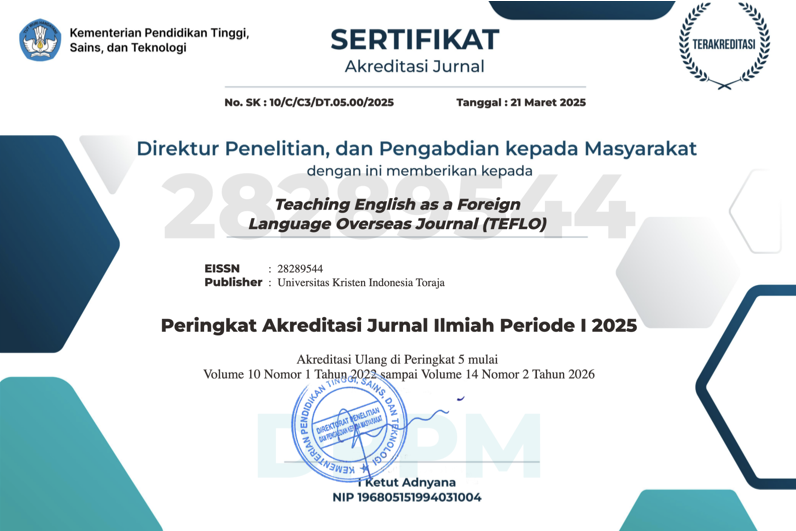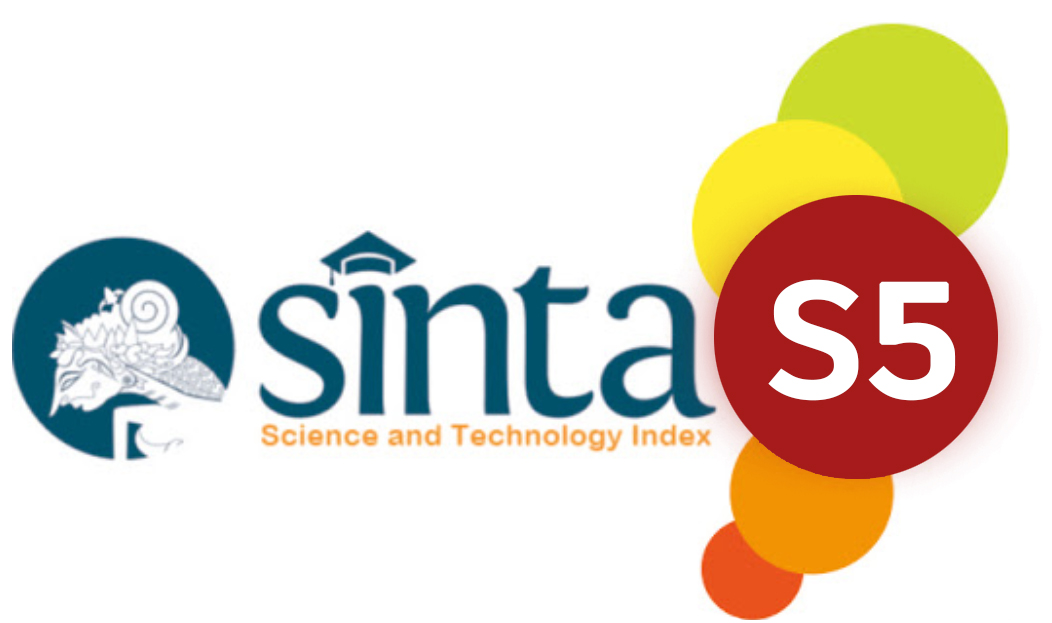THE EFFECTS OF NATIVE SPEAKER RECORDING ON STUDENTS’ LISTENING ABILITY AT SMAN 3 WANGI-WANGI WAKATOBI REGENCY SOUTHEAST SULAWESI
DOI:
https://doi.org/10.47178/teflo.v8i2.1611Keywords:
Listening, Native Speaker, AudiovisualAbstract
The purpose of this research is to know the effect of Native Speaker on students' listening. The results of this study are expected to be useful for students to enrich the listening ability, and can help teachers to be more creative. The research method applied is pre-experimental method by using a pre-test, treatment, and post-test. The subject of this research is XI/IPS 1 and XI/IPS 2 at SMAN 3 Wangi-wangi. This research applied total sampling technique, with a total sample of 20 students. The result of data analysis shown that there was a significant effect of students’ listening by using audiovisual native speaker as a media in the learning process. It can be seen from the value of the t-test is 4.01 higher than t-table is 2.027. Obtaining the student scores indicate that usage of audiovisual Native Speaker can effect on students' listening mastery in VIII/IPS 1 and XI/IPS 2 SMAN 3 Wangi-wangi.
References
Arnold, J. 1999. Affect in Language Learning. Cambridge: Cambridge University Press.
Asher’s James. 1977. Total Physical Response. Washington.
Ba’ka’Charlie. 2010. Teaching Listening Through English Song As a Teaching Aid to the Eighth Years Students of SMP Negeri 3 Makale. Thesis of Teacher Training Faculty, Christian University of Indonesia Toraja.
Brown. 1997. Practical English Language Teaching. McGraw Hill.
Brown. H. D., and P. Abeywicrama. 2010. Language Assessment Principles and Classroom Practices. Macmilan.
Crystal, D. 1997. English as a global language. Cambridge: Cambridge University Press.
Davis Randal. 1998. ESL Cyber Listening Lab. Retrieved April 08, 2015 from http://writing.colostate.edu/guides/teaching/esl/listening.cfm
Heaton, John B. 1975. Writing English Language Test: A Practical Guide for Teachers of English As a Second or Foreign Language. Longman.
Hormby. 1995. Oxford Advanced Learner’s Dictionary. Oxford: Oxford. University Press.
Jeremy Harmer. 1991. Language Arts & Disciplines. Longman.
Keraf, Samapra. 2005. Kadhipta. Jakarta: Balai Pustaka.
P.H. Matthews. 2000. Oxford Concise Dictionary of Linguistics. Shanghai: Shanghai Foreign Language Education Press.
Medgyes, P. 1994. The Non-Native Teacher. London: MacMilan Publishers.
Montalvan, Ruth. 2006. Dictation Updated: Guidelines for Teacher-Training Workshops. Author, Ruth G. Montalvan.
Moussu, L. 2000. Native Versus Nonnative Speakers of English: Students’ Reactions. [On-line]. Available at http://www.moussu.net/courses/portfolio/540.pdf. Accessed on March 2015.
Myhill D., Jones S and Hopper. 2003. Effective Talk in the Primary. Spain.
Oller JW. 1979. Language Test at School. London: Longman.
Ramelan. 1992. Intro to Lisnguistics. Semarang: IKIP Semarang Press.
Rixon, Shelagh. 1986. Developing Listening Skills. London and Basinstoke: Mac Milan Publisher Ltd.
Rost, Michael. 1991. Listening in action. Prantice Hal international (UK) Ltd.
Valette M., Rebecca. 1989. Modern Language Testing. New York: Harcout Brace Javanovich, Inc.
Valette M., Rebecca. 1967. The Use of the Dictee in the French Language Classroom. Modern Language Journal.
Zappolo, A. 1981. Vital and Health Statistics. Hyattsville, MD: National Center for Health Statistics.













